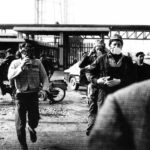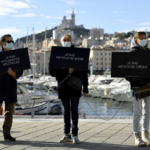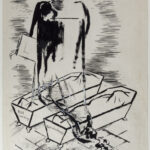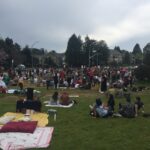
Against Noxiousness (1971)
Any specific struggle over environmental noxiousness is meaningful only if it is connected to a wider battle against the noxiousness of the capitalist organization of work.

Any specific struggle over environmental noxiousness is meaningful only if it is connected to a wider battle against the noxiousness of the capitalist organization of work.

In this perspective, the gray zones of labor, inside and outside capitalist enterprises, can be understood as zones of production of a divided subjectivity, a schizophrenic subjectivity. For me, it is not so much a question of identifying a subject as of understanding the processes of desubjectification: that is, the individual and collective processes that allow us to dispose of subjectivity as it is produced.

If, at the beginning of the pandemic we asked if we were facing a restructuring of class relations within the domestic sphere, that attempted to make households into a laboratory for capital, today we have many more elements to map that dispute. Exercising the feminist strike again, here and across the world, enables us to carry out a confrontation on that plane.

Along the lines of a continuously regenerated creative power, Rosa Luxemburg practiced the incessant coming-and-going from self-to-self, the back-and-forth of actions, polemics, and thoughts: in order to begin again.

The following is therefore meant to be a practical, albeit imperfect and incomplete, account for anyone considering starting a fund like ours. It is also meant to offer some insight into how a strike fund, especially where you would not usually find one, (as with a wildcat strike or other organization of workers not represented by a union with deep pockets) can shape the form and capacity of labor actions.